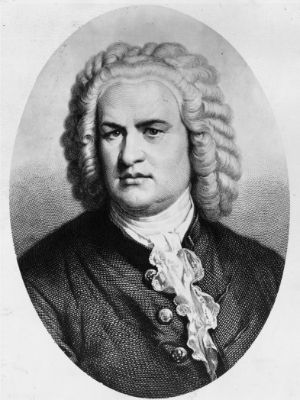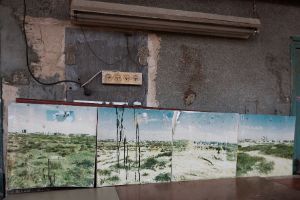

Johann Sebastian Bach
Johann Sebastian Bach
“Johann Sebastian Bach belongs to a family whose love and skill in music appear as though they were universal gifts granted by nature, as it were, to all its members."
These are the opening words of the biographical account in the necrology of Johann Sebastian Bach (1685-1750), published in 1754 and co-authored by one of Bach's sons. For Bach, being part of this family meant much more than just belonging to a loose association of similarly gifted people; for him, it meant security and a safety net in times of need. For at the age of 10, Bach, the son of a city musician from Eisenach, was already an orphan. He was taken in by his eldest brother, who was the organist in a small town nearby and who taught the child, now living with him, the basics of piano playing.
At the age of 15, Bach left Thuringia and became a choral scholar at the church of St. Michaelis in Lüneburg. While there, his general musical education must have progressed very quickly. It seems that Bach had already gained a certain reputation as an expert in organ building, for in July 1703 he was asked to participate in the approval and inauguration of a new organ in Arnstadt, Thuringia. The young musician must have made quite an impression, because less than four weeks later he was appointed organist at this church. Following his first appointment, which by no means satisfied the long-term ambitions of this self-confident young man, he carefully pursued further advancement to more prestigious – and increasingly better-paid – positions.
Bach remained in Arnstadt for four years before entering into service for the Duke of Weimar in 1708, after a brief interlude as organist in Mühlhausen. This is where, up to the end of 1717, he wrote his first masterpieces, which to this day are considered the core of his oeuvre, particularly organ music such as the "Passacaglia" in C minor BWV 582 and cantatas. Bach resigned from the Weimar court, where he had long felt at home, amidst discontent. He had asked to be released from service to become Kapellmeister to the Prince of Anhalt-Köthen, where he felt he had better prospects. In Weimar, however, they were unwilling to let the musician go, and so Bach was obliged to spend four weeks in detention before being able to take up his new duties. In Köthen, Bach was able to draw on an ensemble of outstanding musicians in the court orchestra. The focus of his creative work now shifted to instrumental music. “The Brandenburg Concertos”, the first part of the “Well-Tempered Clavier” and the six “Sonatas and Partitas” for solo violin are among the finest works of this period.
Bach held an excellent position in Köthen, and he now also started a family of his own. He was then distressed to learn that the costs of holding court exceeded the financial resources of the small residency. Bach therefore once again made inquiries, and when the post of Thomaskantor in Leipzig, one of the most prestigious musical posts in central Germany, became vacant in 1722, he applied. It was a lengthy process, and several high-ranking candidates from all over Germany competed against one another. Finally, Bach was chosen, and he assumed his new position in the spring of 1723.
In Leipzig, Bach had finally found a home, and despite many disputes and disagreements with the city council, he was to remain there. For 27 years Bach held the office of cantor and music director of the city. At first, he composed mainly church music, until he acquired a large body of his own works with which he could provide the religious services at the four churches in Leipzig. As of the 1730s, instrumental music was once again at the centre of his creative work. Over a period of more than ten years, he wrote the large-scale four-part "Clavieruebung," which includes the "6 Partitas", the "Italian Concerto", and the "Goldberg Variations", and which represents a compendium of all musical options for keyboard instruments. The demonstration of the entire range of compositional possibilities in exemplary works such as the "Clavieruebung" was a fundamental impulse of his late work, which in its unity of emotional strength and rational depth constitutes one of the highlights of music history.
A widely acclaimed musician, who was admittedly regarded by some younger people as representing an outdated, obsolete style, and a famous organ virtuoso and expert, Bach led an increasingly quieter life. In May 1747, he undertook one more trip to Potsdam and Berlin at the invitation of Frederick II. The last year of Bach's life was marked by a serious health crisis from which he was never to recover. He died on 28th July 1750.
